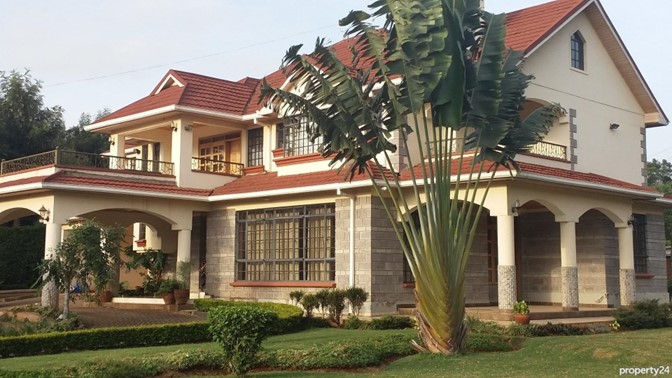Introduction
Have you ever dreamt of turning brick and mortar into financial freedom? Have you envisioned yourself as a successful player in Kenya’s ever-evolving property market? If so, then this guide is your golden key, to unlocking the secrets to building a thriving property business in the heart of Africa.
Get ready to embark on a journey where you are the architect of your success, crafting a future as solid as the foundations you lay. So, are you ready to step into the world of Kenyan property ownership and watch your dreams rise, floor by floor? Dive right in!
1. Define your niche

To start a property business in Kenya, define your niche. Do you envision yourself as a landlord, generating consistent income through renting out apartments, single-family homes, or even multi-family houses? Perhaps you see yourself as a real estate agent, connecting buyers and sellers for a commission, and becoming a trusted guide in this ever-evolving market. Or, maybe your passion lies in property development, where you’ll build and sell properties, shaping Kenya’s urban landscape.
Carefully consider your skills, interests, and available capital. Whether your goal is steady rental income or capitalizing on property appreciation through “buy and hold” strategies, choosing the right niche is the foundation for your Kenyan property journey.
2. Conduct market research
To begin a property business in Kenya, research the current market trends specific to Kenya. Understand factors like population growth, urbanization, and economic development. Identify areas with high demand for real estate, such as growing cities, suburbs, or tourist destinations.
Focus on potential growth areas within Kenya. Consider factors like infrastructure development (new roads, railways, airports) and government initiatives (housing projects, special economic zones). For instance, satellite towns near Nairobi, like Thindigua, Kiambu Town, and Kabete, show promise due to their proximity to the capital and ongoing infrastructure improvements.
Legal regulations and tax implications are critical. Consult with legal experts familiar with Kenyan property laws. Understand property registration processes, land tenure systems, and tax obligations. Kenya’s real estate market offers opportunities, but informed decisions are essential.
This knowledge equips you to navigate the market confidently and make informed decisions.
3. Create a Business Plan
To solidify your foundation in Kenya’s property market, crafting a comprehensive business plan is essential. This roadmap should not only outline your goals (e.g., becoming a successful landlord, maximizing returns through property development) but also delve into financial projections.
Consider factors like potential rental income, property appreciation, and relevant taxes. Don’t forget to account for location, carefully selecting a region that aligns with your target market and investment size.
Whether targeting Nairobi’s young professionals or catering to coastal tourism demands, location matters significantly. Research areas with growth potential, such as Thindigua, Kiambu Town, or Kabete. Assess infrastructure development, proximity to amenities, and demand. Remember, a well-defined plan is your compass, guiding you toward building a thriving Kenyan property business.
4. Organize Your Finances
To launch your Kenyan property venture, it requires a clear understanding of your financial standing. Determine the starting capital needed, factoring in property acquisition costs, potential renovations, and operational expenses. Explore various financing options tailored to the Kenyan market.
For instance consider leveraging your personal savings, demonstrating financial discipline amidst rising real estate prices. Joining a Sacco (Savings and Credit Cooperative) can be efficient for you, particularly if you’ve been saving with them. Examples include Nyati Sacco, Magadi Sacco, TransNation Sacco, and more but ensure to research entry fees, loan eligibility, and interest rates. For those seeking high returns, you can partner with investors in a joint venture such as Old Mutual, Delta Africa Property Fund, Retail Africa, and more, agreeing on profit-sharing terms.
Alternatively, pooling resources with family or friends allows you, as an individual investor, to achieve more rewarding properties by combining purchasing power.
Consider utilizing personal savings, leveraging bank loans with competitive interest rates, or exploring partnership opportunities to pool resources and expertise. Remember, consulting with a financial advisor familiar with the Kenyan landscape can be invaluable in navigating these crucial financial decisions and securing a solid foundation for your property business.
5. Register Your Business
To establish your property business in Kenya, register your business with the Registrar of Companies (accessible through the Business Registration Service (BRS)) and choose a unique business name.
Decide on the appropriate company structure (sole proprietorship, partnership, etc.) based on your needs. Seeking guidance from a real estate lawyer is crucial, as they can navigate legal complexities, draft contracts, and ensure compliance with regulations specific to your chosen niche.
Additionally, depending on your activities, you might need to acquire a business license, seek Land Control Board approval for land transactions, or secure construction permits. Finally, don’t forget about tax compliance. Register for a PIN (Personal Identification Number) with the Kenya Revenue Authority (KRA), and potentially register for VAT (Value Added Tax) if your business turnover exceeds the threshold. Consider joining relevant professional associations like the Kenya Property Developers Association (KPDA) or the Institute of Surveyors of Kenya (ISK) to network and stay informed within the industry.
Remember, navigating these steps with professional guidance ensures a solid legal foundation for your Kenyan property business. Entities like the BRS and firms like Capita Registrars Kenya play a key role in facilitating these registrations and ensuring compliance within the Kenyan business landscape.
6. Start Small
To commence your property business in Kenya, start small. While starting grand may seem tempting, consider taking a strategic, measured approach. Building your own home in Kenya can be a wise first step. Not only does it become a valuable asset but can also serve as leverage for future loans from Kenyan financial institutions offering mortgages tailored to the local market.
Explore mortgage options if your initial capital isn’t sufficient to purchase or build a property. Remember, starting small allows you to gain valuable experience, navigate the Kenyan property market with calculated steps, and pave the way for future growth in your real estate venture.
7. Market your business
To reach your target audience in the Kenyan property market effectively, develop a multi-pronged marketing strategy. Utilize popular online platforms like BuyRentKenya, Property24, and Jumia House to showcase your properties with high-quality visuals and detailed information.
Leverage social media like Facebook, Instagram, and LinkedIn, sharing property updates and engaging with potential clients. Consider creating a professional website with property listings and informative content. Don’t neglect traditional media like Daily Nation or The Standard newspapers and real estate magazines for advertising.
Explore options like radio ads on Capital FM or TV segments on Citizen TV for broader reach. Building relationships is crucial, so attend events organized by the Kenya Property Developers Association or the Institute of Surveyors of Kenya, and participate in real estate expos like the Homes Expo.
Partner with local businesses like banks, law firms, and construction companies for joint promotions or referrals. Finally, engage with your community by sponsoring events or participating in local initiatives to build goodwill and brand recognition. Remember, consistent and targeted marketing efforts are essential to establishing your real estate brand and thriving in the Kenyan market.
Recap
As you embark on the journey to start your property business in Kenya, envision yourself as the architect of your success, crafting a future as solid as the foundations you lay. Define your niche by carefully considering your skills, interests, and available capital; whether it’s becoming a landlord, a real estate agent, or diving into property development, choosing the right path is crucial.
Conduct thorough market research, understanding the trends, growth areas, and legal nuances specific to Kenya’s dynamic real estate landscape. Craft a comprehensive business plan that outlines your goals, financial projections, and location considerations. Organize your finances by exploring funding options tailored to the Kenyan market, such as personal savings, Saccos, or joint ventures. Register your business, seeking professional guidance to navigate legal complexities and ensure compliance.
Start small to gain valuable experience and explore mortgage options for future expansion. Market your business strategically using online platforms, social media, traditional media, and community engagement to establish your real estate brand. As you take each step, remember that this journey is about you shaping your success in the flourishing Kenyan property market.
















